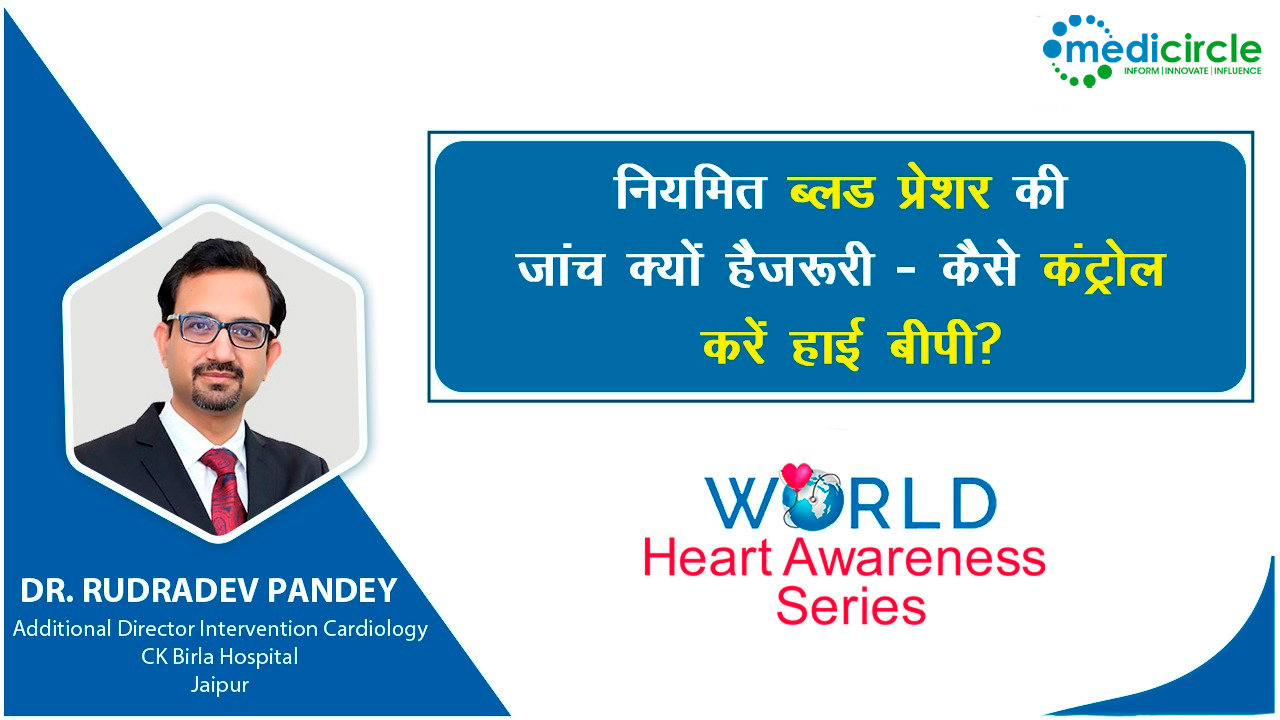Dr. Rudradev Pandey is an Additional Director Interventional Cardiologist in Jaipur and currently practicing at CK Birla Hospital, Jaipur. For the past 15 years, he has worked in this field.
130 is the new high
Dr. Rudradev says, “As per the new guidelines if the blood pressure is 130 mmHg and higher for systolic blood pressure and 80 and higher for diastolic readings, the person is labeled hypertensive. Earlier it was 140/90 and higher. Blood pressure should be measured after 10 mins of proper rest. And the higher it goes, the more problematic it becomes.
Signs and symptoms of hypertension
Most of the time, diabetes and blood pressure are the silent killer. Symptoms are generally vague symptoms
- Headache
- Fatigue and lethargic
- Irritability
We all should go for our routine blood pressure checkup every 3- 4 months. This will help in detecting the disease in its early stage.
Causes of hypertension
Only 50-60% of people are with a known causative factor, for the rest of them, the cause remains unknown. Some of the known causes are
- Thyroid
- Heart diseases
- Blockage of renal arteries
- Self-induced
- Congenital factor
Controlling high blood pressure
Simply with lifestyle modifications and dietary changes, you can reduce 30-40 mmHg of blood pressure. Medicines are also there which can act on high blood pressure.
Risk factors for high blood pressure
- Thyroid
- Stressful life
- Kidney problems like CKD
- High cholesterol
- Weak heart valve
Diagnosis
Home monitoring for hypertensive patients – The patient needs to keep a close check and regularly monitor his/her blood pressure every 1-2 days with the device. Maintain a diary of your BP readings as this will help the doctor in prescribing treatment.
Non-hypertensive patients need to get their BP checked once every 3-4 months.
Facts about hypertension
- The hypertensive patient should maintain their sodium levels > 6 gms.
- If the blood pressure is above 180, then the person should refrain from doing exercises. Otherwise, the person can do exercises that help in controlling hypertension.
- Hereditary hypertension is seen only in 10% of patients.
(Edited by Renu Gupta)

 The new definition of Stage 1 high blood pressure is a systolic pressure of at least 130 or a diastolic pressure of 80 or above. Previously it was 140/90. Hypertension is one of the biggest risk factors for heart disease and stroke. The redefined guideline is to raise awareness and improve treatment.
The new definition of Stage 1 high blood pressure is a systolic pressure of at least 130 or a diastolic pressure of 80 or above. Previously it was 140/90. Hypertension is one of the biggest risk factors for heart disease and stroke. The redefined guideline is to raise awareness and improve treatment.









.jpeg)








.png)
.png)

.png)
.png)
.png)

.png)
.png)
.png)

.png)
.png)